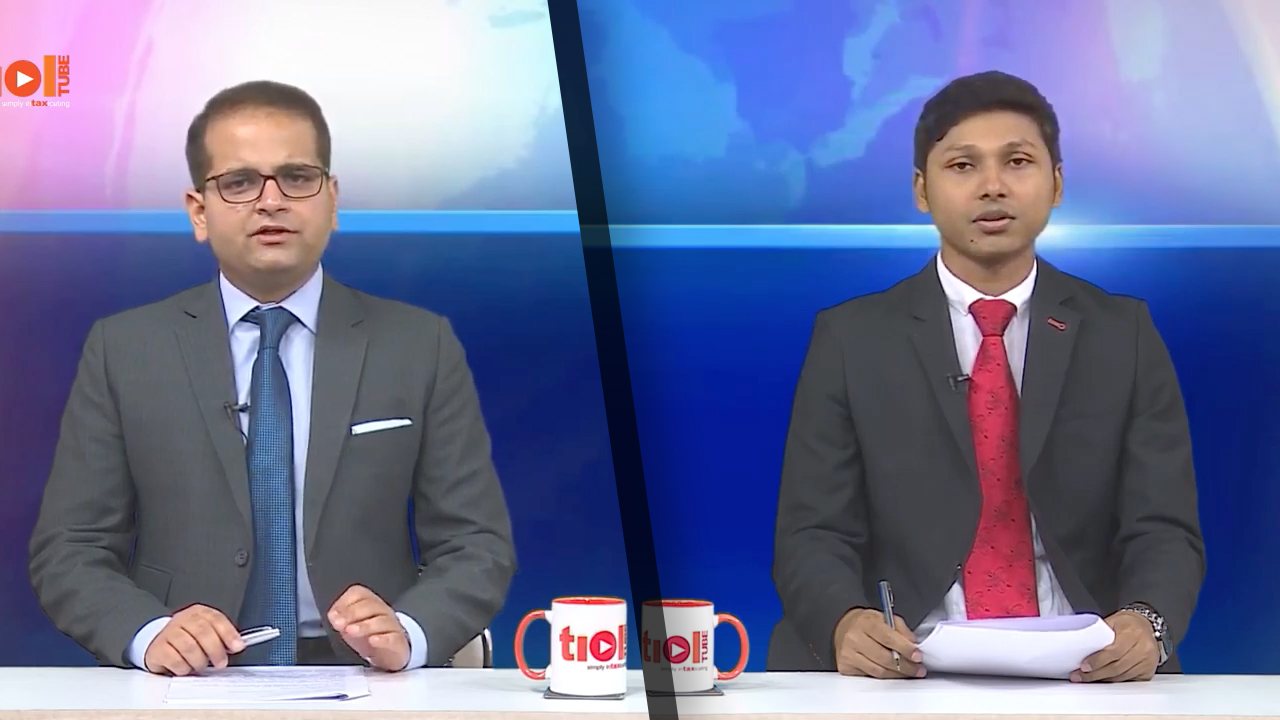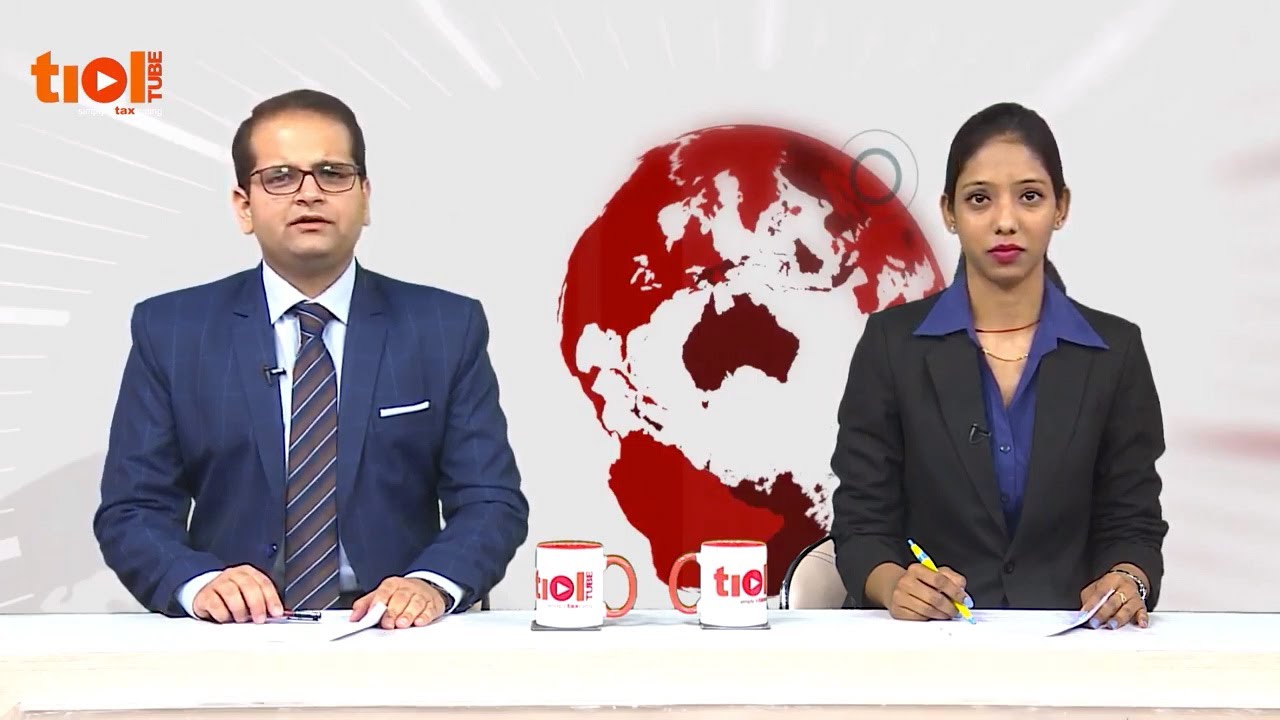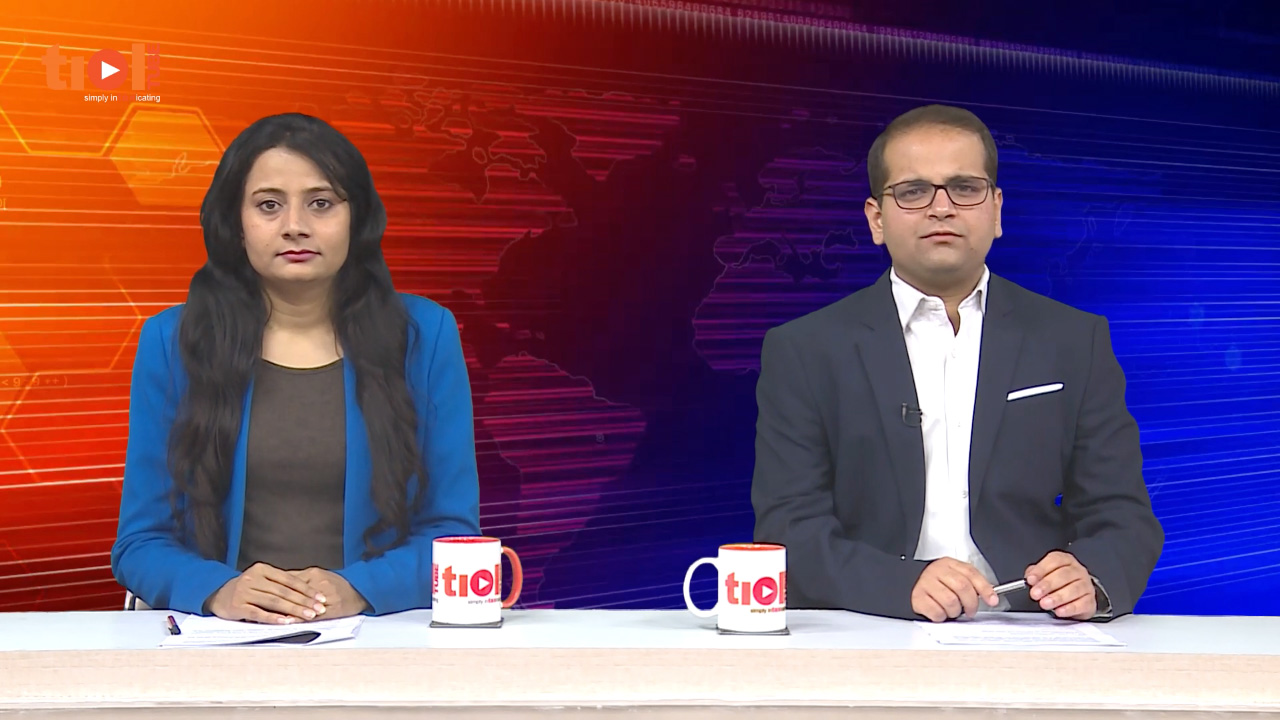|
SERVICE TAX
2019-TIOL-1075-CESTAT-MUM
ICICI Prudential Life Insurance Company Ltd Vs CCE
ST - Insurance Service - Section 65(105) describes the taxable event but does not provide any clue as to the point at which tax liability arises - for the first time in 2011, rules for determining the point of taxation in various circumstances were notified and would, therefore, apply to only a portion of the disputed amount - it is seen that the average turnover time can vary from three to twelve days between the receipt of the proposal and issue of policy and it is only at that stage that the acceptance to the contract occurs and policy is issued - Prior to notifying the Point of Taxation Rules, 2011, tax liability crystallised on the receipt of consideration - in the present dispute, appellant has admittedly paid duty according to their own interpretation of the point at which the tax liability arises - tax liability is required to be computed from the moment the consideration is received even if the contract of insurance specified the commencement of risk from a different date - Both, before and after the notification of the Point of Taxation Rules, 2011, it is the date of payment that determines the performance of the service for discharge of tax liability - since the appellant has discharged the tax liability belatedly, they are required to pay interest - penalties set aside since the appropriation of tax already paid is an exercise in superfluity: CESTAT [para 12, 14, 15]
- Appeal partly allowed : MUMBAI CESTAT
2019-TIOL-1074-CESTAT-MAD
SCGST & CE Vs Sanco Trans Ltd
ST - The assessee is engaged in providing Storage and Warehousing Service, Custom House Agent Service, Port Service, Clearing and Forwarding Service - SCN was issued to assessee proposing to demand service tax in respect of various amounts realized by them - The first issue is with regard to demand of service tax on Maintenance and Repair Services on containers - The maintenance and repair work has been taken up under an agreement with the service recipient by assessee themselves - They have merely outsourced such work to contractors appointed by them possibly because they themselves did not have the wherewithal or facilities - Such contractor may well have paid up the service tax on labour cost after paying VAT on value of materials - Merely because the assessee has outsourced the activity of washing and repair of containers to another, it cannot be said that they have not provided any services - The document issued by assessee to the customer shows that the bills are raised for washing and repairing of containers - However, from the document, it appears that the assessee has billed a consolidated sum to the customer, which includes material costs as well as taxes paid by the contractor - The quantification of demand under this category is therefore incorrect and requires to be revised - For the limited purpose of requantification, the matter is remanded to adjudicating authority - Even from the reply of assessee to the SCN that they have taken shelter under a misinterpretation of the definition of "Maintenance and Repair Service" in Section 65(64) of FA, 1994, and in particular, the amendment caused w.e.f. 15.06.2005 - This being so, no penalty is imposable in respect of any final tax liability that may be arrived on this score - With regard to appeal filed by Department against dropping of demand on reimbursable expenses, since the same are actual expenses, they are not includible in taxable value - The issue stands covered by decision in case of M/s. Intercontinental Consultants and Technocrats Pvt. Ltd. - 2018-TIOL-76-SC-ST - The Department's appeal is therefore devoid of merits and liable to be dismissed - The issue whether reimbursable expenses are includible in taxable value was under litigation for a long time - Therefore, being an interpretational issue, the penalty imposed under this category is set aside: CESTAT
- Revenue's appeal dismissed : CHENNAI CESTAT
CENTRAL EXCISE
2019-TIOL-1073-CESTAT-BANG
Sogefi Mnr Engine Systems India Pvt Ltd Vs CCT
CX - The assessee is engaged in manufacture and clearance of excisable goods viz. automotive filters, industrial filters and ceramic filters and are availing CENVAT credit on input and capital goods as well as input services - Audit had pointed out that assessee had failed to file prescribed ER-6 Returns for period April 2012 to February 2016, giving details of receipt and consumption of each principal input in manufacture of final product - The assessee has committed the lapse of non-filing of ER-6 Returns which is required to be filed under Rule 9A(3) of CCR, 2004 - In case of violation of provision of CCR, 2004, a general penalty is provided under Rule 15A - Further, for violation of CCR, both the authorities have imposed penalties under CER, 2002 which is not permitted by law therefore by invoking Rule 15A of CCR, 2004, impugned order imposing the penalty under Rule 27 of CER, 2002 and Rule 12(6) of CER, 2002 is set aside and imposed a penalty under Rule 15A of CCR, 2004 - The penalty is reduced to Rs.5000/- only under Rule 15A of the CCR: CESTAT
- Appeal partly allowed : BANGALORE CESTAT
2019-TIOL-1072-CESTAT-KOL
Swami Packagers Pvt Ltd Vs CCE
CX - The assessee is engaged in manufacture of HDPE Containers and other Plastic Containers - The Department carried out certain investigations in connection with allegation that assessee has not paid Central Excise duty on goods manufactured by them - Upon conclusion of investigation, SCN was issued to assessee and other connected persons proposing demand of duty on goods said to be cleared by assessee in name of three fictitious firms - Assessee has admitted on record that clearances made to the main two customers in name of three fictitious firm were in fact the clearances of the goods manufactured by assessee - However, he has serious misgivings in respect of quantification of demand - The demand confirmed by adjudicating authority in the first round of litigation was about Rs.22.00 lakhs, which was arrived at after extending the benefit of SSI Notfn - But the demand in impugned order has been revised upward to Rs.77.00 lakhs by denying the benefit of SSI exemption, which has been objected to by the assessee, particularly, in view of the fact that no appeal was filed by Revenue against O-I-O - On behalf of assessee, it has also been submitted that there are several errors in computation of the demand in present round of litigation - A view of the errors highlighted are that certain amounts have been accounted twice - both under M/s Swami Packagers Pvt. Ltd as well as ledger of the buyers and certain amounts shown in ledger of M/s Mata Packaging as payable to M/s Trade Centre, Guwahati, have been included as clearances made in the name of M/s Mata Packaging even in the absence of any documentary evidences to this effect - Revenue has fairly admitted that double entries as well as entries considered for inclusion even without documentary evidences are liable to be excluded from the turnover and may be re-determined - From the impugned order, no clear reason is evident for denying SSI benefit - In the initial round of litigation, adjudicating authority has extended such benefit while computing the final demand for duty - No reason found to deny the benefit of SSI exemption even in the present round of litigation - It is evident that there are errors evident in work sheets in which the demand has been quantified - The benefit of SSI Notification has also been un-justifiably denied - Matter remanded to the adjudicating authority for requantification of the demand: CESTAT
- Matter remanded : KOLKATA CESTAT
2019-TIOL-1071-CESTAT-AHM
Stovec Industries Ltd Vs CCE
CX - The issue at hand is whether the appellant company is required to pay duty as per Rule 3(5) of CCR 2004, upon clearance of capital goods after use for a substantial period - The present issue had earlier been raised before the Tribunal, which remanded the matter to the adjudicating authority to re-determine the quantum of Cenvat credit, after considering the depreciation allowed under the relevant rule - An appeal challenging such order is pending disposal before the High Court - On remand, the adjudicating authority requantified and raised duty demand with interest & equivalent penalty u/s 11AC - On appeal, the Commr.(A) sustained the O-i-O - Hence the present appeal to the Tribunal, in a second round of litigation.
Held: The Tribunal in the earlier order held that duty was payable on removal of used capital goods, before remanding the matter for re-calculating the duty after considering depreciation - Hence the issue of demand for Cenvat credit re-quantified by the adjudicating authority was not open for fresh decision - Hence the demand confirmed upon adjudication merits being upheld - Moreover, it is seen that the matter was not free from doubt, considering that the matter was remanded to the Larger Bench, which decided that duty is payable after considering depreciation - Besides, Rule 3(5) does not prescribe any method for calculating the duty in respect of removal of capital goods after use - Moreover, the duty demand was raised for normal period - This clearly shows there to be no suppression of facts on the appellant's part - Thus, the penalty imposed u/s 11AC is unwarranted - The demand for interest is sustained, considering the mandate of Rule 14 which provides for charging of interest on credit availed or utilized - The Apex Court in Union of India Vs. Ind-Swift Laboratories Ltd held that interest is chargeable on credit availed, even though not utilized - Hence the appeal is partly allowed: CESTAT (Para 1,4,5)
- Assessee's appeal partly allowed : AHMEDABAD CESTAT
CUSTOMS
NOTIFICATION
ctariffadd19_019
Seeks to rescind anti-dumping duty notification No. 39/2018-Customs (ADD) dated 20.08.2018, in pursuance with sunset review final findings issued by the DGTR CASE LAWS
2019-TIOL-1070-CESTAT-DEL
Sun Gems Vs CC
Cus - The assessee is engaged in importation of Cubic Zirconia (cut and polished) by mis-declaring the quality by declaring the superior quality as inferior quality before assessment by the Customs - The assessee also imported packing materials for packing of such imported Cubic Zirconia for sale through different customs port/foreign post office, Jaipur - During investigations, four statements were recorded from Shri Sunil Batwara, proprietor of assessee wherein he has accepted the contention of Department regarding undervaluation of imported Cubic Zirconia and deposited Rs. 5 lakhs - The SCN was adjudicated upon Joint Commissioner of Customs for both the period from 5.10.2011 to 7.12.2012 amounting to Rs. 4,15,796/- and Rs. 4,99,590/- for the period from 18.12.2009 to 30.9.2011 - Since branding, grading on the basis of quality and packing are processes which are carried out in India, even as per SCN, therefore, the goods as were cleared by Customs after proper assessment in normal packing cannot be termed to be the same as were being sold by them or imported by them in vacuum packing, after branding and grading - He further argued that from the extracts of the statement of Shri Sunil Batwara it is apparent that he is nowhere admitting that the goods in normal packaging were same as the goods which were branded in country of export and were vacuum packed at the time of simultaneous importation - He stated that the very fact that the goods were being graded, branded and being vacuum packed in India showed that important processes, adding value were being carried out on goods imported in normal packing in India - Therefore, their value can not be equated with goods which were already vacuum packed - He therefore, emphasized that firstly there was no admission by Director in the instant case and secondly in any case it is trite law that the admission statement of a Director cannot form the basis of valuation or assessment - In the absence of corroboration and cogent evidence, the Department's case is based upon assumption and presumption, that the goods in normal packing were having the same value as the branded and vacuumed packed goods, which in any case cannot be a pragmatic value in commercial world - It is not uncommon to do labour and processing on various imported goods in India as the same compare to India is normally expensive in overseas market - Accordingly, the impugned order is set aside: CESTAT
- Appeal allowed : DELHI CESTAT
2019-TIOL-1069-CESTAT-DEL
Vinayak Cargo Vs CC
Cus - The present is the case of export of prohibited red sanders by M/s Bhavya Exports wherein a SCN was issued to assessee being the custom broker - Simultaneously, another SCN was served to said M/s Bhavaya Exports - Both the SCN have already been adjudicated imposing a penalty of Rs. 25 thousand under Regulation 22 of CBLR, 2013 upon assessee - The assessee had applied for renewal of his licence after the expiry of ten years of licence as was granted to him to work as Customs House Agent/ Customs Broker, vide his letter dated 21/03/2018 - The assessee is aggrieved of rejection of his request vide the said letter - Regulation 9(1) of CBLR 2013/2018 talks about the renewal of the license from time to time in accordance with the procedure specified in the sub Regulation 9(2) - A perusal thereof makes it abundantly clear that for seeking renewal the performance of licensee has to be found satisfactory with reference, inter alia, to the obligations specified in Regulations including, the absence of instances of any complain of misconduct - The time limit of one month from the date of receipt of application is only with respect of any other complaint of misconduct then the violation of the obligations specified in this Regulation - As discussed assessee has been observed to have committed a lapse while processing the export consignment of M/s Bhavya Exports, wherein prohibited red sanders were found illegally exported - The penalty has been imposed under Regulation 11 (a) (d) and (m) for CBLR, 2013 same is sufficient to hold the CHA had not satisfactorily observed the obligations of impugned Regulations the same is a definite basis for competent authority to arrive at a satisfaction for the application to be entitled for renewal of CHA licence - Finally coming to the argument of doubt jeopardy as put forth by assessee that said ground is not sustainable as non renewal of license under Section 9 Sub-Rule 2 of CBLR and the revocation thereof are two different things - For this reason, the ground taken by assessee that the license has not been revoked but the suspension thereof, does not extend an unfettered right to the CHA to seek renewal of the said license at the time of its expiry without meeting the mandatory criteria for the same - The fact remains is that the conditions (a) to (h) of Regulation 5 CBLR have to be fulfilled by CHA even at the time of the renewal thereof - Conditions (d) and (e) thereof are relevant for the present adjudication - The fact still remains is that the assessee stands penalised/ convicted for the offence alleged against him vide SCN - No infirmity found in the order, the same is thereby upheld: CESTAT
- Appeal dismissed : DELHI CESTAT
2019-TIOL-1068-CESTAT-MAD
P Kumareasan Paulnadar Vs CC
Cus - The assessee filed a Bill of Entry for import of "Shell Bangles, Plastic Toys and Kitchen items" declaring a value of Rs. 8,45,517/- and the weight of consignment was 18000 Kgs - A SCN was issued interalia proposing to reclassify shell bangles and toys under different CTHs and in turn re-determining the value under Rule 9 - There is no finding on the legal submissions of assessee nor is there any discussion as to the correctness or otherwise of such submissions and the Tribunal have to say that the findings arrived at and upheld by First Appellate Authority, are incoherent as far as the facts are concerned - At this juncture, it is very useful to refer to one of the pleas of assessee that it had sought for re-export of goods back to its supplier on account of mis-match and apparently the same is not at all discussed by lower authorities - At the same time, Tribunal donot found any justification given by the adjudicating authority in re-determining the value at almost ten times the declared value nor is there any working given by the adjudicating authority before arriving at his value - Further, the adjudicating authority has also not discussed about the prevailing market value of goods involved before imposing redemption fine nor has he discussed about applicability of Section 125 since, admittedly, the Revenue has not made out a case that the goods sought to be imported are prohibited under the Customs Act or under any other law for the time being in force and therefore the redemption fine appears to be disproportionate - So many loose ends as of above, make the orders of lower authorities not only non-speaking but also unsustainable - Tribunal is unable to consider the plea of assessee and decide the issue sitting in appeal and therefore, it deems proper to set aside the impugned order and thereby remand the matter back to the file of the adjudicating authority: CESTAT
- Matter remanded : CHENNAI CESTAT |
|









